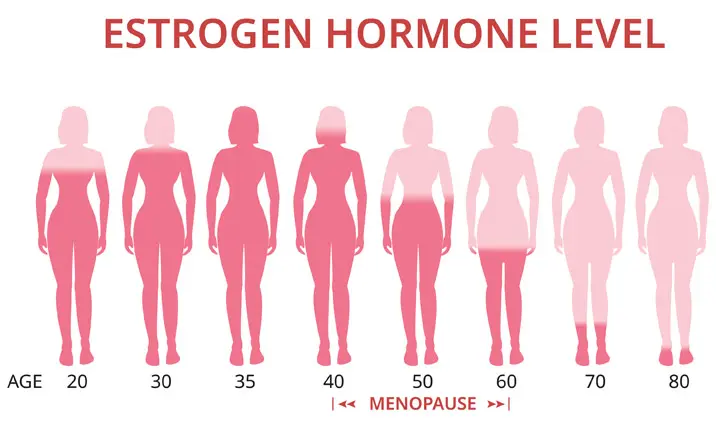-
-
Featured Care Areas


Source: Shutterstock
Fact or fiction? 5 Things You've Been Told About Fertility
Last updated: Friday, November 5, 2021 | 6 min reading time
What are the common beliefs surrounding fertility issues, and are they true?
Have you and your partner been trying to conceive for what seems like ages with no luck? Well, you're not alone. Infertility is a common problem that can have a crippling psychological effect on aspiring parents. No doubt you would have already scoured the internet or received advice from well-meaning family or peers. However, it can sometimes be difficult to separate fact from fiction so let's take a look at some things you may have heard about infertility, and whether they are true.
What is infertility?
Infertility is defined as being unable to conceive after 12 months or more of regular, unprotected sex. It can be the result of reproductive issues in women or men, or a combination of both. In Singapore, approximately 15% of couples are affected.
Let's examine some common misconceptions, and the truth (or not!) behind them.
Myth: Infertility is a woman's issue
Female infertility accounts for more than a third of cases. However, both men and women can experience problems with their reproductive system.
Causes of infertility in women
Problems that affect a woman's reproductive system include:
- Ovulation disorders, which affect the release of viable eggs
- Blocked or damaged fallopian tubes
- Polyps or fibroids
- Endometriosis, a condition in which the tissue from the uterine lining is found outside the womb such as the ovaries and fallopian tubes. Inflammation from endometriosis may damage the sperm or egg, or interfere with their movement through the fallopian tubes and uterus, making it difficult for the woman to conceive.
Causes of infertility in men
According to the World Health Organization (WHO), the overall quality of semen has suffered globally over the years. Similarly, healthcare institutions in Singapore have seen an exponential increase in the number of men seeking fertility treatments over the past few years.
Among men, some causes of infertility include:
- Abnormalities in production or function of sperm, which can affect the quality of sperm or lead to low production, sometimes known as low sperm count.
- Problems with delivery of sperm, such as premature ejaculation
- Prolonged exposure to chemicals, drugs and/or radiation, or frequent use of saunas or hot tubs can also affect sperm production. This can include smoking and alcohol consumption, use of recreational drugs, medications for certain conditions as well as cancer therapy.
As causes of infertility can be attributed to reproductive issues found in both women and men, or a combination of both, it's important for both parents-to-be to be checked for possible reproductive problems before you start trying to conceive.
Fact: Infertility is linked to a woman's age
Women are generally born with an estimate of 1 million eggs, and the quality of eggs slowly decreases over the years hence age certainly plays a significant role in a woman's fertility. By the age of 35, the number of eggs would be down to 50,000 and by menopause, 1,000 or less.
Once a woman is over 35 years old, her chances of conceiving naturally fall by half; and by the age of 41, her chances would have dropped to a mere 4%. The cell division process that occurs during ovulation may become abnormal, and this leads leading to an increased risk of miscarriage or giving birth to a child with a genetic disorder.
However, infertility can affect young women too. For instance, women under the age of 40 with primary ovarian insufficiency (a condition where the ovaries stop working normally due to depletion or dysfunction of ovarian follicles) or those suffering from polycystic ovarian syndrome (a hormonal imbalance that interferes with normal ovulation) will find it challenging to conceive.
Myth: You should see a doctor the moment you feel that you might be infertile
When a couple is unsuccessful in trying to conceive, it is natural to fear that infertility may be the cause. However, it may be a premature assumption as underlying conditions such as polyps, endometriosis, or sperm count issues can make it more difficult to conceive.
If you are still at an early stage of trying to conceive, it may help to check for these conditions so they can be rectified early.
Infertility screening and testing
Couples who are having difficulty conceiving should consider going for fertility screening. In addition to taking a detailed medical history, your doctor may recommend several tests to check for common problems.
To pinpoint the cause of infertility among men, your doctor may recommend:
- Hormone testing, which may involve blood tests to check for low levels of sex hormones such as testosterone
- Genital ultrasound to obtain images of the internal structure and organs, to check for abnormalities in the genital area
- Genetic testing to check for hereditary conditions that may affect fertility
Screening tests for women may include:
- Pelvic examination, to check for conditions like fibroids or endometriosis
- Blood tests to check for ovulation
- Ultrasound or X-ray (hysterosalpingography) to check the ovaries and uterus
- Laparascopy, in which a small camera is inserted to examine internal organs
- Hormone tests to determine a woman's ovarian reserve, such as Anti Mullerian Hormone (AMH).
Myth: The only solution to infertility is IVF
It has been over 40 years since the successful birth of the first baby conceived using IVF. Since then, more than 8 million babies have been born using this method. However, while it is not the only solution to infertility, it is common for people to assume that couples struggling to conceive will try IVF.
To understand more about fertility issues that affect men and women, couples are recommended to go for fertility screenings so that doctors can recommend a method that is suitable for them.
Infertility treatments
Depending on the cause of infertility, your doctor may recommend one of the following:
- Following a precise intercourse timing to increase the chances of conceiving.
- Intra-uterine insemination (IUI), a form of artificial insemination that involves placing the sperm inside a woman's uterus to facilitate fertilisation. This option is less complicated and less expensive than IVF.
- Surgery, which can be used to improve sperm count if the cause is a blockage of sperm transport in the genital tract.
- Anti-oxidants such as Vitamin C and Vitamin E to for male patients to increase their sperm count and quality.
- IVF, in which the egg and sperm are fused in an external laboratory environment. IVF is necessary when the fallopian tubes are blocked, or when surgery to treat low sperm count is ineffective. If couples have tried other types of treatment and have not been successful, IVF may help. IVF has a 30 – 40% rate success per cycle, and some couples may require more than one cycle to conceive.
However, IVF is not a one-size-fits-all solution hence it is important to come to IVF consultation with an open mind and realistic expectations. You will need to undergo multiple tests and consultations and you will need to fully understand the risks and requirements, and what the procedure will involve.
Myth: My overall health does not affect my fertility
Couples should optimise their general health when they are trying to conceive. Not only can this improve chances of becoming pregnant, but it can also lower the risk of complications during pregnancy. Eating sensibly and having regular exercise are strongly recommended.
Factors that can affect your chances of having a baby
- Caffeine intake – Caffeine is one of the most popular methods of combating fatigue. However, women who consume excessive amounts of caffeine may take longer to get pregnant. In one study, those who consume the most caffeine had a 45% risk of waiting more than nine months before becoming pregnant.
- Alcohol consumption – Alcohol poses a risk for women who are trying to get pregnant as it decreases conception rates and increases the risk of miscarriage. While there is no known safe limit, you might want to think twice before taking that second or third glass of wine if you’re trying to conceive. Similarly, alcohol consumption has also been shown to cause male infertility.
- Smoking – Smoking has been proven to lower men's sperm count. It also increases the likelihood of a premature birth or miscarriage. Scientists have also found that women who are constantly exposed to second-hand smoke, either as adults or children, are more likely to have issues with fertility or suffer a miscarriage.
- Stress – Stress on both men and women can affect their chances of conceiving. Women who are highly stressed are less likely to ovulate regularly while stress can affect men’s energy level and libido.
Infertility can be incredibly frustrating. However, it doesn't necessarily mean you will never get pregnant. Consultations with fertility experts can provide you with valuable insights on the multitude of options and solutions available to help you conceive your little bundle of joy.
(29 August 2018) What is a normal sperm count? Retrieved 18 March 2019 from https://www.healthline.com/health/mens-health/normal-sperm-count
(May 2017) Does his stress level affect your chances of getting pregnant? Retrieved 18 March 2019 from https://www.babycenter.com/404_does-his-stress-level-affect-your-chances-of-getting-pregnan_1411900.bc
(n.d.) Fertility health check. Retrieved 18 March 2019 from https://ilovechildren.sg/fertility-health-check-2018
(n.d.) Frequently asked questions – Endometriosis. Retrieved 18 March 2019 from https://www.acog.org/Patients/FAQs/Endometriosis?IsMobileSet=false
(n.d.) Infertility. Retrieved 18 March 2019 from https://www.womenshealth.gov/a-z-topics/infertility
(8 October 2018) Ovulatory Dysfunction. Retrieved 29 March 2019 from https://www.centerforhumanreprod.com/infertilityedu/causes/ovulatorydysfunction/
(May 2009) Conditions that affect fertility. Retrieved 29 March 2019 from https://www.health.harvard.edu/newsletter_article/Conditions-That-Affect-Fertility
(8 October 2018) Superovulation and Intrauterine Insemination. Retrieved 18 March 2019 from https://www.kkh.com.sg/patient-care/conditions-treatments/superovulation-intrauterine-insemination-problems-conceiving
(7 July 2017) Varicocele. Retrieved 29 March 2019 from https://patient.info/mens-health/scrotal-lumps-pain-and-swelling/varicocele
(12 January 2019) Rise in male infertility in Singapore mirrors global sperm crisis. Retrieved 18 March 2019 from https://www.businesstimes.com.sg/life-culture/rise-in-male-infertility-in-singapore-mirrors-global-sperm-crisis
(n.d.) Male infertility – Causes. Retrieved 18 March 2019 from https://urologyclinics.com/symptoms/infertility_m/causes.html
(12 January 2013) Almost one in six couples face infertility: study. Retrieved 18 March 2019 from https://www.reuters.com/article/us-couples-infertility-idUSBRE90A13Y20130111
(24 May 2017) Rushing for time: Why your age is key in fertility treatment. Retrieved 29 March 2019 from https://acrm.com.sg/patient-resource-centre/articles/age-key-factor-fertility-treatment/
(n.d.) Infertility Treatment: An Overview. Retrieved 29 March 2019 from https://web.stanford.edu/class/siw198q/websites/reprotech/New%20Ways%20of%20Making%20Babies/Causefem.htm
(5 December 2008) Second Hand Smoke Raises Odds of Fertility Problems in Women. Retrieved 29 March 2019 from https://www.urmc.rochester.edu/news/story/2309/second-hand-smoke-raises-odds-of-fertility-problems-in-women.aspx
(10 July 2017) Van Heertum, K & Rossi, B. Alcohol and fertility: how much is too much?. Retrieved 29 March 2019 from https://www.ncbi.nlm.nih.gov/pmc/articles/PMC5504800/
(2012) Infertility. Retrieved 29 March 2019 from https://www.womenshealth.gov/a-z-topics/infertility
(13 April 2021) Reproductive Health: Infertility. Retrieved 25 October 2021 from https://www.cdc.gov/reproductivehealth/infertility/index.htm
(14 September 2020) Infertility. Retrieved 25 October 2021 from https://www.who.int/news-room/fact-sheets/detail/infertility
(n.d.) Infertility in Women: Causes and Treatment Options. Retrieved 25 October 2021 from https://www.healthxchange.sg/women/pre-pregnancy/infertility-women-causes-treatment
(n.d.) Infertility in Women: Causes and Treatment Options. Retrieved 25 October 2021 from https://www.healthxchange.sg/women/pre-pregnancy/infertility-women-causes-treatment
(3 February 2019) Everything You Need to Know About Infertility. Retrieved 25 October 2021 from https://www.healthline.com/health/infertility
(1 September 2021) Infertility. Retrieved 25 October 2021 from https://www.mayoclinic.org/diseases-conditions/infertility/symptoms-causes/syc-20354317
(1 September 2021) Infertility. Retrieved 25 October 2021 from https://www.healthline.com/health/infertility#diagnosis
(20 November 2020) Low Sex Drive (Hypogonadism). Retrieved 25 October 2021 from https://my.clevelandclinic.org/health/diseases/15216-low-sex-drive-hypogonadism
(May 2017) Does his stress level affect your chances of getting pregnant? Retrieved 18 March 2019 from https://www.babycenter.com/404_does-his-stress-level-affect-your-chances-of-getting-pregnan_1411900.bc
(n.d.) Fertility health check. Retrieved 18 March 2019 from https://ilovechildren.sg/fertility-health-check-2018
(n.d.) Frequently asked questions – Endometriosis. Retrieved 18 March 2019 from https://www.acog.org/Patients/FAQs/Endometriosis?IsMobileSet=false
(n.d.) Infertility. Retrieved 18 March 2019 from https://www.womenshealth.gov/a-z-topics/infertility
(8 October 2018) Ovulatory Dysfunction. Retrieved 29 March 2019 from https://www.centerforhumanreprod.com/infertilityedu/causes/ovulatorydysfunction/
(May 2009) Conditions that affect fertility. Retrieved 29 March 2019 from https://www.health.harvard.edu/newsletter_article/Conditions-That-Affect-Fertility
(8 October 2018) Superovulation and Intrauterine Insemination. Retrieved 18 March 2019 from https://www.kkh.com.sg/patient-care/conditions-treatments/superovulation-intrauterine-insemination-problems-conceiving
(7 July 2017) Varicocele. Retrieved 29 March 2019 from https://patient.info/mens-health/scrotal-lumps-pain-and-swelling/varicocele
(12 January 2019) Rise in male infertility in Singapore mirrors global sperm crisis. Retrieved 18 March 2019 from https://www.businesstimes.com.sg/life-culture/rise-in-male-infertility-in-singapore-mirrors-global-sperm-crisis
(n.d.) Male infertility – Causes. Retrieved 18 March 2019 from https://urologyclinics.com/symptoms/infertility_m/causes.html
(12 January 2013) Almost one in six couples face infertility: study. Retrieved 18 March 2019 from https://www.reuters.com/article/us-couples-infertility-idUSBRE90A13Y20130111
(24 May 2017) Rushing for time: Why your age is key in fertility treatment. Retrieved 29 March 2019 from https://acrm.com.sg/patient-resource-centre/articles/age-key-factor-fertility-treatment/
(n.d.) Infertility Treatment: An Overview. Retrieved 29 March 2019 from https://web.stanford.edu/class/siw198q/websites/reprotech/New%20Ways%20of%20Making%20Babies/Causefem.htm
(5 December 2008) Second Hand Smoke Raises Odds of Fertility Problems in Women. Retrieved 29 March 2019 from https://www.urmc.rochester.edu/news/story/2309/second-hand-smoke-raises-odds-of-fertility-problems-in-women.aspx
(10 July 2017) Van Heertum, K & Rossi, B. Alcohol and fertility: how much is too much?. Retrieved 29 March 2019 from https://www.ncbi.nlm.nih.gov/pmc/articles/PMC5504800/
(2012) Infertility. Retrieved 29 March 2019 from https://www.womenshealth.gov/a-z-topics/infertility
(13 April 2021) Reproductive Health: Infertility. Retrieved 25 October 2021 from https://www.cdc.gov/reproductivehealth/infertility/index.htm
(14 September 2020) Infertility. Retrieved 25 October 2021 from https://www.who.int/news-room/fact-sheets/detail/infertility
(n.d.) Infertility in Women: Causes and Treatment Options. Retrieved 25 October 2021 from https://www.healthxchange.sg/women/pre-pregnancy/infertility-women-causes-treatment
(n.d.) Infertility in Women: Causes and Treatment Options. Retrieved 25 October 2021 from https://www.healthxchange.sg/women/pre-pregnancy/infertility-women-causes-treatment
(3 February 2019) Everything You Need to Know About Infertility. Retrieved 25 October 2021 from https://www.healthline.com/health/infertility
(1 September 2021) Infertility. Retrieved 25 October 2021 from https://www.mayoclinic.org/diseases-conditions/infertility/symptoms-causes/syc-20354317
(1 September 2021) Infertility. Retrieved 25 October 2021 from https://www.healthline.com/health/infertility#diagnosis
(20 November 2020) Low Sex Drive (Hypogonadism). Retrieved 25 October 2021 from https://my.clevelandclinic.org/health/diseases/15216-low-sex-drive-hypogonadism










